Blogs » Society » WIN a Dinner Buffet for Four
Blogs » Society » WIN a Dinner Buffet for Four |
- WIN a Dinner Buffet for Four
- Seven Great Love Stories for Chinese Valentine's Day
- WIN a RMB2,000 Kyboe Watch from Restaurant Week
- China Gooses Its Economy With Cash
- Pigs Depicted Having Sex Doggy-Style In Zhengzhou Public Square Are Said To Represent Filial Piety
- Picture of the Day x2: 798 Art Zone Lomography
- WIN Tickets to the Late Night Detention Party at Eden
- The Second Vaccination
- Watch: HK gives hero's welcome to activists arrested on disputed islands
- China Product Quality. Only You Can Prevent Quality Fade.
- Mao Yushi: China nowhere near the standard of a world power
- Today's Links: Poisonous dog treats, a free stadium for Ghana and the death of the world's oldest male panda
- Drunk, Speeding 19-Year-Old Driver Without A License Kills Construction Worker, And Then His Girlfriend Does Something Truly Jaw-Dropping
- Surprise! Buzzfeed’s “Hilariously Wrong Knock-Offs Of Famous Brand Names” Samples Heavily From China
- LeBron James In Beijing, Featuring A Red Throne And Two-Handed Reverse Dunk
- ‘A Full Fact-Check of Niall Ferguson’s Very Bad Argument Against Obama’: Matthew O’Brien
- Six days in Hong Kong’s Occupy Central
- Mid-Week Links: Another Chinese person dismembered in Canada, “body double” blocked on Sina Weibo, and “face-kinis”
- Calls grow to scrap US nuclear plant
- TICT Beach Party at Bund Beach (August 18)
| Posted: 22 Aug 2012 09:04 PM PDT |
| Seven Great Love Stories for Chinese Valentine's Day Posted: 22 Aug 2012 08:34 PM PDT Date: Aug 23rd 2012 11:04a.m. Contributed by: georgiabarnett Chinese Valentine's Day is today. Here we share seven Chinese love stories that have happened in the news recently. |
| WIN a RMB2,000 Kyboe Watch from Restaurant Week Posted: 16 Aug 2012 02:58 AM PDT |
| China Gooses Its Economy With Cash Posted: 22 Aug 2012 09:11 PM PDT The cash injection into China's economy made this week by the Peoples' Bank of China, is the largest since early this year. It follows the weakest month for bank lending in a year. The sum involved: 278 billion yuan ($43.8 … Continue reading → |
| Pigs Depicted Having Sex Doggy-Style In Zhengzhou Public Square Are Said To Represent Filial Piety Posted: 22 Aug 2012 07:55 PM PDT I can explain this. Some people's minds have not been corrupted by the unseemly elements of our indecorous times. They glimpse a work of art such as this and think of the lessons a mother can pass to her child, who is not at all uncomfortable with her exposed tit. Um. PIETY. By unseemly elements, by the way, I mostly mean liberals, but also pranksters, and middle-aged men who have lost hope, and those young people who know not what they do, and vagabonds who have slipped through society's cracks, and fallen women, and criminals of blue or white collars, and the irreligious, and factory workers, and that guy I saw drinking a beer on the street with red meat on a plate in front of him, and girls who smoke, and those who enjoy watching the world burn. Constantly in the gutter, is it any surprise they reek of impropriety and egomania, and threaten to drag the rest of us into their sordid lair? These rotten apples would never look upon this sculpture in Zhengzhou, Henan province and think of "a young pig giving his mother a back massage," according to Shanghaiist. They are dastardly, that's why.
Perseverance, diligence, and love. Young children. Doubt us at your own risk. |
| Picture of the Day x2: 798 Art Zone Lomography Posted: 22 Aug 2012 07:00 PM PDT Ed's note: The Good Doctor has several more pictures like these on this Google+ album. You should check 'em out. One more set after the jump. |
| WIN Tickets to the Late Night Detention Party at Eden Posted: 22 Aug 2012 06:27 PM PDT |
| Posted: 22 Aug 2012 06:00 PM PDT
This posting includes an audio/video/photo media file: Download Now |
| Watch: HK gives hero's welcome to activists arrested on disputed islands Posted: 22 Aug 2012 06:00 PM PDT Hong Kong has given a warm welcome to activists returning home after being arrested by Japanese police. They had landed on disputed islands waving Chinese and Taiwanese flags. [AP] [ more › ]     |
| China Product Quality. Only You Can Prevent Quality Fade. Posted: 22 Aug 2012 05:32 PM PDT By: Steve Dickinson China automakers Chery and Great Wall were recently forced to recall 23,000 autos exported to Australia. The reason for the recall is that the brake linings and engine gaskets in the cars contained asbestos. Asbestos is banned in Australia and 55 other countries. Due to the hazardous nature of the product, the cars had to be recalled back to China since remediation in Australia was not possible. It is assumed that all involved suffered substantial losses and that the Chinese move into the Australian auto market has been permanently damaged. Chery and Great Wall have been on a push over the past several years to export their products overseas. Their efforts have been limited mostly to second and third tier markets. Entry into Australia was intended as the first move into first tier developed country markets. After Australia, the plan was to move strongly into North America and Europe. This recall suggests that the entry into Australia will be a failure. This bodes ill for any plans to enter the highly competitive North American/EU markets. How can this monumental blunder be explained? In a recent WSJ blog post, China auto industry expert Michael Dunne attributes the catastrophe to "quality fade." Quality fade occurs when initial production meets all applicable standards, but later production level deliveries are defective. The defects are in hidden components not easily discovered by surface inspections. Over time, the problem gets worse, hence the description "fade". The Chinese cars fit this description perfectly. The cars looked just fine; the defects were hidden in the brake linings and gaskets. Why the Chinese companies would destroy their entry into Australia merely to save small change on these cheap components is a mystery. However, the fact is they did it and foreign buyers of Chinese products should consider this lesson carefully. If a Chinese company will do this to themselves, what will they do to an unrelated importer? The answer is that it appears that Chinese companies will do virtually anything to save a few pennies. A big question with respect to Chery and Great Wall is whether they were victims or perpetrators as it is quite possible that they received the gaskets and brake linings from outside suppliers. Foreign companies remain heavy buyers of manufactured goods from China. As these goods become more complex, the risk of hidden defects only increases. The China auto fiasco provides a number of lessons:
What is the solution? The main point I want to make is that there IS a solution. The solution works as follows: 1. All purchases from China must be made under a well-drafted contract that is enforceable in China. Purchases under informal purchase orders simply do not work for China. For more on China OEM Agreements, check out the following:
2. The contract with the Chinese manufacturer must provide for a mechanism where the foreign buyer can exercise constant control over the quality of the Chinese product. Liability for defect must be made clear and it must fall hard on the Chinese side. If possible, no defective product should ever be permitted to even leave the Chinese factory. If defective product is discovered outside of China, the Chinese side must be absolutely liable for dealing with the problem. The standard procedure (in China, anyway) for dealing with defects through a discount on future purchases must not be used. 3. The foreign buyer must actually follow through and constantly monitor the quality of the product. The best contract with the best procedure is no good if the foreign side does not follow through by rigorously implementing the procedures outlined in it. As I mentioned above, this is an expensive and tiresome process. Parties that do not follow through are almost guaranteed to experience problems in China. These problems are an irritant to the Chinese side but can be fatal to the foreign side. For this reason, the only side that has any incentive to follow through is the foreign side. Our clients often ask us whether China product quality is getting any better. My standard answer is no and yes. No, Chinese manufacturers are not doing a better job on their own at maintaining quality. In fact, if left on their own, much evidence suggests they are doing worse. But yes, the legal system and quality control systems have progressed to the point where aware and active foreign companies can force Chinese manufacturers to operate in a reasonably acceptable manner. However, they have to be forced to do it. They will not do it on their own. The Chery/Great Wall fiasco illustrates this final point. Do you agree? |
| Mao Yushi: China nowhere near the standard of a world power Posted: 22 Aug 2012 04:00 PM PDT Liberal economist, winner of the Cato Institute's 2012 Milton Friedman Prize for Advancing Liberty, and outspoken critic of the Communist Party Mao Yushi, speaks to NTD and lets rip at the Chinese government for its lack of respect for human rights. This, says Mao, is the main reason why China is still far from being a world power, and incapable of making significant contributions to human civilisation despite being the world's second largest economy. [ more › ]     |
| Posted: 22 Aug 2012 01:48 PM PDT  A few links to start off your day: Poisonous dog treats, a free stadium for Ghana and the death of the world's oldest male panda [ more › ] A few links to start off your day: Poisonous dog treats, a free stadium for Ghana and the death of the world's oldest male panda [ more › ]     |
| Posted: 22 Aug 2012 12:50 PM PDT In Chengdu recently, a speeding sedan driven by a drunk 19-year-old without a driver's license plowed into three roadside construction workers, killing one and injuring the others. After police and a news team arrived on the scene, cameras caught an astonishing sight: what appeared to be the driver and a young woman in a red dress being tender with one another. The journalist on scene reports that the man's demeanor immediately changed when he realized he was being filmed. It's here that we'll point out that he wore a shirt with "Sexy" on it and had a male companion who angrily told off the camera. That should be enough to incite ire from every viewer, especially those who have been quick to curse these youngsters as fu'erdai, second-generation rich. But then, something truly incredible happens. The girlfriend, while walking away, suddenly whirls around and croaks at the camera, "Film me, ya ya ya ya ya!" Idiot, here's your rope. After being led away — dragged, we imagine — she waves at the news team, the side-slit in her dress revealing her thin legs and platform shoes. "Film me!" she caws. Would it be impolite for me to tell her to beware what she wishes for? Netizen comments have been, to put it mildly, unkind: @YYJ白酒一两: What a rotten woman, no taste in clothes, also ugly, I'd find her cumbersome if she were given to me for free. @絡莯蘩錵: His father must be Li Gang. @牛人刘凤江: These beasts aren't severely punished, heaven tolerate, that girl is not only shameless, but also is a wolf-hearted, dog-lunged [idiom: cruel and unscrupulous], cold slut. @波板糖微博: This type deserves a prison sentence, that woman is disgusting. @aibama88: Beasts plus perversion. If indeed these lads and that misfortunate lass — who you can rest assured in knowing will get everything that's coming to her — are indeed fu'erdai, their families will hook them up with a lawyer and this incident will be but a speed bump in their wonderful, blessed lives. There is, however, no amount of money that can buy public perception, or wipe this video off the Internet. The human flesh engine will mete out punishment by publicizing their names, and soon after we just might have another Chinese Internet meme. "Ya ya ya ya ya" will not be forgotten anytime soon. Let that be the rallying cry for airheads and dimwits everywhere. (H/T Alicia) |
| Surprise! Buzzfeed’s “Hilariously Wrong Knock-Offs Of Famous Brand Names” Samples Heavily From China Posted: 22 Aug 2012 11:34 AM PDT A Buzzfeed community contributor has compiled a list of "20 Hilariously Wrong Knock-Offs Of Famous Brand Names," and they are indeed hilarious, more so for us because we think we've identified at least eight images that are most likely from China. They appear after the jump. Enjoy. (H/T Alicia) |
| LeBron James In Beijing, Featuring A Red Throne And Two-Handed Reverse Dunk Posted: 22 Aug 2012 08:55 AM PDT LeBron James arrived in Beijing yesterday to kick off his four-day promotional tour through China, and there's a video after his jump of his rather… theatrical first public appearance. The activity was FindYourGreatness, sponsored by Nike, held in Chaoyang Gymnasium. Fast-forward past the acrobats to the 2:30 mark to watch LeBron make his exalted entrance, barely noticing the big red throne (intentionally not acknowledging it?), wearing a "Long Live the King" T-shirt. "Greatness is defined by how much hard work you put into what you do," he told the audience. During the game, someone picked up a microphone and tried to pressure James to step onto the court, "for one minute." But James had no interest in pulling a Kobe, i.e. scoring 68 points in 15 minutes. He demurred, "I'm injured." Not injured enough to do this though during warm-ups: Here are some more pictures, via Reuters/Sina and Xinhua/China Daily: Finally, here's a BTV sports show's story on the King: Youku videos of the above: |
| ‘A Full Fact-Check of Niall Ferguson’s Very Bad Argument Against Obama’: Matthew O’Brien Posted: 22 Aug 2012 07:40 AM PDT As yesterday's post, 'As a Harvard Alum, I Apologize': James Fallows, shows, Mr. Fallows fired the opening salvo on Niall Ferguson's 'Obama's Gotta Go.' Now, his colleague at The Atlantic, Matt O'Brien, continues with 'A Full Fact-Check of Niall Ferguson's Very Bad Argument Against Obama': Celebrity historian Niall Ferguson doesn't like President Obama, and doesn't think you should either. That's perfectly fine. There are plenty of legitimate reasons to disapprove of the president. Here's the big one: 8.3 percent. That's the current unemployment rate, fully three years on from the official end of the Great Recession. But rather than make this straightforward case against the current administration, Ferguson delves into a fantasy world of incorrect and tendentious facts. He simply gets things wrong, again and again and again. (A point my colleague James Fallows makes as well in a must-read.) Here's a tour of some of the more factually challenged sections of Ferguson's piece. All are worth considering, especially the China section: "The failures of leadership on economic and fiscal policy over the past four years have had geopolitical consequences. The World Bank expects the U.S. to grow by just 2 percent in 2012. China will grow four times faster than that; India three times faster. By 2017, the International Monetary Fund predicts, the GDP of China will overtake that of the United States." China has 1.3 billion people. The United States has 300 million people. China's GDP will pass ours when they are only four times poorer than us. That might happen in 2017; it might happen later if China's current slowdown is more than a blip. It doesn't really matter if and when this happens. There's nothing Obama can do to prevent China from catching up — nor should Obama want to! Economics isn't zero sum. The more money China has, the more money they have to buy things from us and other countries. This is good news, and yet Ferguson treats it like a modern-day equivalent of "losing China". In closing, I repeat what I wrote yesterday: By the way, like Mr. Fallows, I am also a Harvard alum, but I don't apologize. I didn't hire Dr. Ferguson; would not have hired him at the time; and would fire him now (except for that sticky tenure thing) if I could. In other words, 'HIT THE ROAD, NIALL.' 'FERGUSON'S GOTTA GO.' |
| Six days in Hong Kong’s Occupy Central Posted: 22 Aug 2012 04:05 AM PDT  28 days after the Occupy Wall Street protests started in New York on September 17, activists began gathering in the walkthrough plaza underneath the HSBC bank building, in Central district, Hong Kong. The initial group of activists were young and vocally anti-capitalist, but as their numbers dwindled homeless people, the bottom 1% of the 99%, also began inhabiting the plaza. By the time I arrived in the camp on July 15, the Activists had stopped living there full-time, the Homeless were occupying the space, and HSBC had filed a court request to have the camp removed. What follows is a diary of Occupy Central with notes on both groups – Activists and Homeless – who in the past ten months have occupied the southern third of HSBC plaza. Monday, July 15 Alan Chiu, a bespectacled former systems consultant who tied his greying hair up in a ponytail, said around 20 Occupy Central Activists were still regularly protesting at the site, though as of the camp's six-month mark they had stopped living there. Now, he said, the group held meetings on Tuesday, Thursday and Saturday evenings. Chiu said he had been with Occupy Central since the start, and was the only protestor I met that still spent substantial time at camp outside of the activists' meetings. Chiu's anger with Hong Kong's government was still burning strong when we spoke. "Public officers have taken extra authority, but no responsibility at all," he said. A Marxist who hates the CCP, Chiu still dropped by the camp most days to check up on residents and generally served as a hands-off caretaker. Despite his dedication to Occupy Central, Chiu's name did not appear among the defendants in HSBC's court filing to have the protestors removed. Aside from a blanket listing of "The occupiers of the ground floor of 1 Queen's Road Central, Hong Kong", the bank named three main defendants, two Homeless and one Activist: Wong Chung Hang, Ho Yiu Shing, and Mui Kai Ming. The first is an older Fujianese gentleman who cannot care for himself and relies largely on other camp members for food. The second, who prefers the title Master Ho, splintered off from the movement following an altercation over leadership — the Activists didn't want any — to form his own encampment nearby. The third is the brother of deceased Hong Kong film and music star Anita Mui Yim-Fong and is connected with Occupy Central through his participation in protests over HSBC's handling of his sister's will. Though I never saw him during my time in camp, Mui recently told the Associated Press that he would "absolutely" not leave Occupy Central. Wong Chung Hang's name also shows up in notes provided by HSBC to the courts covering the one and a half hours that three bank representatives spent at the camp on the morning of Tuesday, May 29. According to the three pages of notes — a sliver amongst the inch-thick stack of records and surveillance photographs submitted by the bank alongside its petition as evidence — the representatives met with both Wong and Master Ho. Wong is given one sentence of description: "After the Representatives notified Mr Wong about the Bank's request, Mr Wong seemed calm and receptive." Under a final section titled "Observations after the discussion with the Group and Mr. Ho" the report stated that "The Occupiers understood the message conveyed by the Bank and the reason why the Representatives were there to talk to them." Wong's own understanding of the situation receives no comment. The notes also mention that the Occupy Central activists present during the visit told the representatives they personally rejected its offer to assist them in vacating the premises — a claim corroborated by the Activists' own accounts — before adding that the movement would need to hold discussions before reaching a collective decision–a process they said could take months and involve up to a thousand people. By the time I arrived even Alan Chiu had stopped participating in the Activists' meetings, though he was still on friendly terms with them. I learned of their schedule from him when he suggested I come back the following evening at 10 pm. Tuesday, July 17, 10pm The Activists that did show up on time occupied themselves as they waited for the rest to show up. The trails of cigarette smoke slowly multiplied above the camp's den, and an iPhone pumped out rock music from a pair of tinny portable speakers. Some members surfed on their various Apple gadgets (iPads, iPhones, a Macbook Pro) while others painted watercolors or recorded their cohorts using high-end SLR and video cameras. The Activists all ate Subway on Tuesdays, I was told, to take advantage of a two-for-one deal. Also popular was imported Heinekin, an empty six pack of which soon sat crushed on a nearby coffee table. During the meeting the camp's residents mostly snoozed in tents or on the remaining open couches, though one elderly man decided to treat the Activists as a captive audience for his renditions of classic Cantonese songs. After about an hour his tremulous falsetto tapered off, allowing Winnie Lee to introduce herself. Lee, a Singaporean immigrant with a squirrely disposition, said she'd worked in Hong Kong for ten years. While she and her six-year-old daughter didn't live in the camp, Lee said they often came by for the company and free food. When I asked what she thought of the Activists, Lee laughed. "Hong Kong is a great place for bullshit. In China everybody has to shut up, but in Hong Kong people can talk all they want," Lee said, waving a hand toward the Activists, who were talking to members of a visiting youth union. "They all just talk talk talk, it seems like they do nothing." At around midnight Charles Lecroart, a tall Belgian with a five o'clock shadow and short curly hair, walked into camp with sandwiches, pasta, bread and boxes of mango juice. Lecroart said he'd passed out drunk one night on a sofa in Occupy Central and decided to stay when he woke up. "In Hong Kong you see a lot of people alone that need help," Lecroart said. "Here, they can help each other." I picked up a loaf from the table to check its price: $118, or about two fifths of what a Hong Kong resident working for minimum wage earns in a 10-hour day with no meal breaks. Curiosity piqued, I asked where Lecroart had gotten the food. Wednesday, July 18 Dumpster diving in Hong Kong 22 hours later I found myself nervously standing watch as Lecroart and two university students pulled garbage bags from the dumpsters of an organic supermarket. I'd been brought along on the condition that I not reveal the store's name or location, lest word get out and the food supply dry up. The students were members of the Leftovers, a squad of charitable dumpster divers who filch food bound for the dump and delivered it to local shelters for the indigent. The bags held a bounty of premium comestibles marked up and marketed to Hong Kong's health-conscious, all still sealed in air-tight packages inside the black waterproof sacks. A mountain of food large enough to feed a dozen families quickly grew at my feet: baguettes, fresh pasta, sticky-sweet mochi cakes, styrofoam bowls packed with rice, prime cuts of beef, 16 bottles of premium soymilk and tray after tray of sushi slipped from the black bags. I had finally loosened up enough to start tallying the payload when an angry voice came from the doorway behind me: "Careful!" I spun around to see Mark from Minnesota step out of the shadows. Mark was a permanently barefoot American with with long stringy hair and a scraggly goatee. His glasses weren't the right prescription, but he had managed to preserve one of his own contact lenses which he occasionally popped in to read a battered copy of H. G. Wells's The War of the Worlds. The Chinese government had deported Mark to Hong Kong after arresting him for traveling illegally in Tibet on an expired visa — though not before putting him in a Chengdu prison for 30 days. "What are you doing out here in the open?" Mark asked, pointing up at a security camera fixed on the patch of well-lit asphalt where most of the food lay. "You've got to get over in the shadows or the guards will see you!" he said. When all the food had been retrieved, the group split up the night's haul. The Leftovers took about half of it to give to homeless shelters, and about a third went back to Central for the Occupy camp. Mark announced he would take the remainder to some vagrants near the Kowloon ferry terminal. On the way he explained he wasn't doing so out of the goodness of his heart: "I just hate to see food wasted," he said. Mark said he'd been surprised when he arrived in Hong Kong that nobody he spoke to had heard of dumpster diving; the Leftovers squad had formed under his guidance. As we approached the HSBC building I asked him why he'd stopped living in Central after two and a half months. He said it was because life in Central was too comfortable, too easy. "Getting attached makes you weak," he said. Back in camp Alan Chiu, Charles Lecroart, Winnie Lee, her daughter, Master Ho and a few others were gathered in the dining area feasting on the harvest from the dumpsters. Two passing tourists from the Atlantic African islands of Cape Verde had come into camp to ask what it was, only to be treated to dinner. Sitting nearby in one half of a love seat and mumbling softly to himself was Wong Chung Hang, the addled man from Fujian listed as a defendant in the HSBC court papers. Mark from Minnesota, who liked to refer to Wong as his Fujianese grandpa, offered him a plate of tofu and encouraged him to eat a little. With a bit of coaxing Wong began shakily spooning the bean curds into his mouth. Thursday, July 19 When I arrived in camp Thursday evening the Activists were busy cleaning up the camp's eastern third—everything but the tents. Watching from the dining area Mark remained caustically aloof. "It's great," he said, "I just wish they'd do stuff like this more often." As the other Activists spruced things up I sat down with Chin Tang, a freelance designer who said she had been with the movement from the beginning. Chin said the group had decided not to fight HSBC in court on account of having rejected the legitimacy of the government, as well as the concept of private property. She said the camp served as a commons where possession was meaningless and everything was available to anyone who needed it. "We believe that humans can gather together by themselves. We don't have to be ruled by the government," Chin said. "We also have a policy of not calling the police." Asked for an example, Chin smiled and said that the week before a man with a sword had entered the camp and begun stroking the inner thighs of every woman present with the blade. When talking failed to make him stop she said the group decided to spray the man with bottles of detergent until he ran off rather than call the authorities. I suggested this kind of tactic might not work on the authorities if the High Court ruled against Occupy. "We are planning on doing something after they clear us out, but I don't…" Chin said, trailing off. She paused, then told me she'd rather the group not lose the element of surprise. After our conversation she rejoined her friends and together they sorted through piled-up rubbish and reminisced over old anti-capitalist banners from the camp's salad days. Friday, July 20 The following evening found members of the group "Photo Now" using Occupy Central as a venue for their photo gallery. I recognized some of them as Activists who had cleaned up camp the night before. The photographers had hung glossy prints of their work on the laundry lines which ran through the ladders along the camp's northern border. On a table next to the bookshelf housing the camp's library of subversive literature they had set out bottles of Italian White wine from high-end supermarket Marks and Spencer. The show had drawn a crowd which held steady at arond 20 to 30 people throughout the evening and managed to attract a few journalists from local publications. But this turnout was dwarfed by those meeting in the camp on the other side of the ladders, where around 50 people had gathered for Central's eighth monthly 'Book X Change'. Participants in the Book X Change brought their favorite books to each month's meeting, swapped them with fellow members, then returned a month later to share their thoughts with the group via bullhorn. Francesca Chin, there to share her impressions for the first time, said she had heard about the club from a friend. Chin — whose next read would be Yu Hua's China in Ten Words — said the books most members brought reflected issues which loomed large in the city's collective consciousness, such as its ambivalent relationship with the Mainland and a pervasive anxiety over the possible rollback of rights. She said the group was unique in Hong Kong. "Before the meetings you're strangers," Chin said, "but after, you're friends." Monday, July 23 At around 6 pm a reporter from Ming Po magazine was interviewing three Activists in the camp's den, on the north side of which the laundry lines had been stripped of photos to protect them from typhoon Vicente's imminent landfall. Gloria, an Italian woman who could usually be found lying inert on a couch in the camp's southeast corner, ambled over and made an announcement: "I want to get a picture of your cock tomorrow." She ambled off leaving my eyebrows an inch higher, but the activists hardly missed a beat. At around 9:15pm emergency klaxons wailed warning of typhoon Vicente. Most of the HSBC plaza's storm doors rumbled shut, leaving only two openings on either side. The Activists had left, but the Ming Po reporter had stayed to interview the camp's residents. While she spoke with Alan Chiu, whose eyes bulged as he skimmed the book about the Occupy phenomenon she had brought with her, wave after wave of pedestrians hurried past the camp toward the subway station on the building's north side. Later that night and shortly before meteorologists announced Vicente had become a class 10 typhoon, Mark from Minnesota had stumbled into camp soaking wet and dazed. He dropped the hulking bags of food he'd brought from across the harbor and stumbled around a bit, clutching his back. At about 1am the plaza's storm doors shut completely in the face of the strongest typhoon to hit Hong Kong in over a decade. Outside the winds tore up the young palms which lined the city's streets and snapped the trunks of old-growth trees with roots deep in the island's mountainside forests. Safely ensconced, the residents of Occupy Central were warm, dry and full. The next morning I woke up to find Leon Head, an older British resident, grinning at me. "Slept like a baby, you did," Head said. Next Monday, August 27 On August 13 Hong Kong's High Court ruled that HSBC could evict Occupy Central so that the bank could maintain the plaza as a pedestrian throughway. Magistrate Reuden Lai told Agence France-Presse that "[t]he defendants can't provide sufficient reason to continue to live on the property so the court has decided to allow the plaintiff to take back the property." The deadline for occupants to leave the plaza is 9 p.m. on August 27, the time of which dovetails with HSBC's request to the court for permission to remove the camp outside of office hours for fear of possible resistance or negative publicity. Links and sources Occupy Central Hong Kong Protesters Enter Their Second Day Hong Kong: Why Occupy Central? Hong Kong court approves 'Occupy' eviction Hong Kong: Occupy Activists To Be Evicted Other stories from Hudson on Danwei Photos of Hong Kong's anti-national education protest Xie Yan and the fight against bad conservation laws Follow him on Twitter @KangHexin |
| Posted: 22 Aug 2012 05:00 AM PDT
UCLA men's basketball will be in China next week, and players promise to be on their best behavior. In unrelated matters, links. What's up, Canada? "A mother of three, Guang Hua Liu lived in a middle-class neighbourhood in Scarborough. A licensed holistic practitioner, she became the owner of a spa in May. // A friend dropped off the 41-year-old businesswoman at the Forget-Me-Not Health Care spa on Friday, Aug. 10 around 6:30 p.m. // Ms. Liu never came home. // …Peel police said Tuesday that Ms. Liu was the victim of a gruesome killing and dismemberment." [The Globe and Mail] So they're calling it "face-kini," eh? "In China, it's the height of the tourist season for Qingdao's famed beaches. But while many of the town's visitors want to enjoy the sand and water, they're not so wild about sunbathing. So they often resort to a local tradition: the face-kini, a sort of light cloth version of a ski mask." [NPR] This just gives this conspiracy theory legs. "Sina Weibo, China's most active microblogging service, and Baidu, its largest Internet search engine, have both blocked the term tishen (替身, literally 'body replacement') after a barrage of citizens began questioning whether the woman shown standing in the courtroom during one of the most sensational trials in recent Chinese history was really Ms. Gu." [WSJ] Sinkholes again. "According to local media in Heilongjiang Province, there were 7 cases of road collapsing occurred in 8 days in the city of Harbin, which located in northeast China. 2 people were killed, 2 injured and 2 vehicles fell into the pit. The incidents triggered a public outrage and criticism towards municipal government." [Free More News] Seems reasonable. "Sina Weibo has lit up today over the case of a man in Guangzhou who called the police because he felt his Spicy McChicken was too spicy." [The Nanfang] Chinese manufacturing. "Far from death by a thousand Chinese widgets, it turns out the London Olympiad would've barely survived without them — it wouldn't have had fireworks, the soccer field would've been incomplete, and referees would've had to officiate in their underwear. Courtesy of the fantastic Ministry of Tofu, via Sina, here's an infographic compilation of what Chinese products made their way to London…" [The Atlantic] Robot chefs interlude: Finally… So all the money the Foreign Correspondents' Clubs in China get goes toward sending emails, I see. [AFP, China Digital Times] Xiaomi Phone 2 launch party. [MIC Gadget] Dan Rather on China's "power of the people." [Asia Society interview by Dan Washburn] Gu Kailai conspiracy theories. [Foreign Policy] Comedian Joe Wong to perform in Mandarin in Boston. [8Asians] Finally, finally…
|
| Calls grow to scrap US nuclear plant Posted: 22 Aug 2012 02:51 AM PDT A radioactive leak could see permanent closure of the San Onofre nuclear plant, as public frustrations mount. Jan McGirk reports from California. A radioactive leak may prove to be the swan song for one of California's ageing nuclear-power plants, the San Onofre Nuclear Generating Station, also known by the rather innocuous acronym SONGS. Located in northern San Diego county, and normally able to supply 2.1 million homes with electricity, the pressurised water reactor has been switched off since January 31, when one of its generators leaked what the plant's operator, Southern California Edison, called "an insignificant or extremely small release" of radioactive steam into the atmosphere. This week, the plant announced plans to lay off a third of its workforce. |
| TICT Beach Party at Bund Beach (August 18) Posted: 22 Aug 2012 04:07 AM PDT |
| You are subscribed to email updates from Update » Blogs » Society To stop receiving these emails, you may unsubscribe now. | Email delivery powered by Google |
| Google Inc., 20 West Kinzie, Chicago IL USA 60610 | |

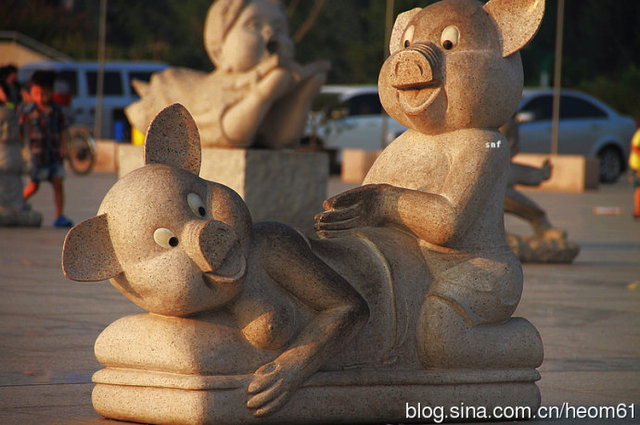
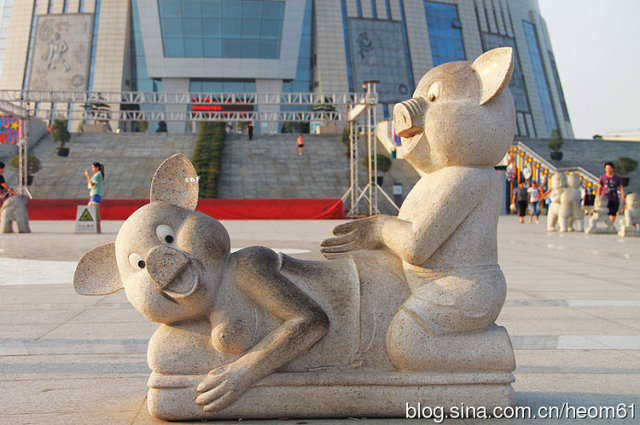
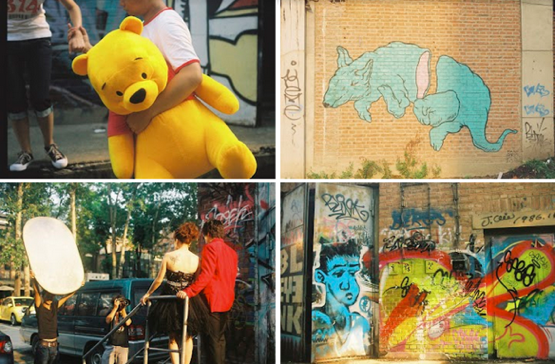
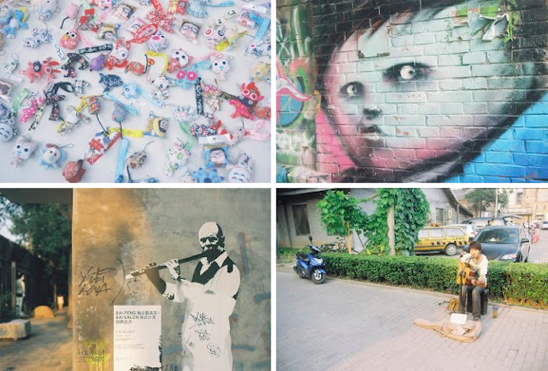


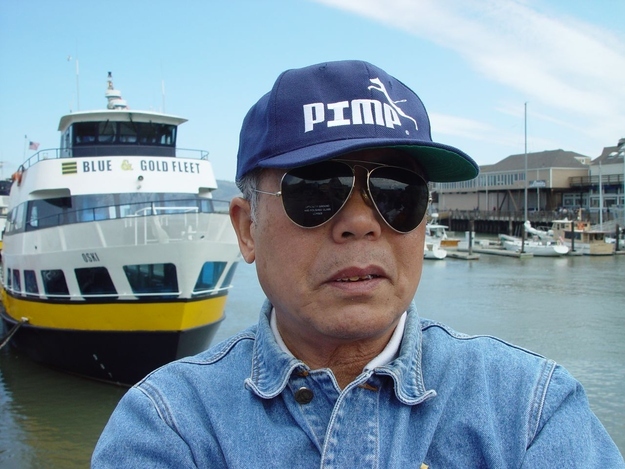


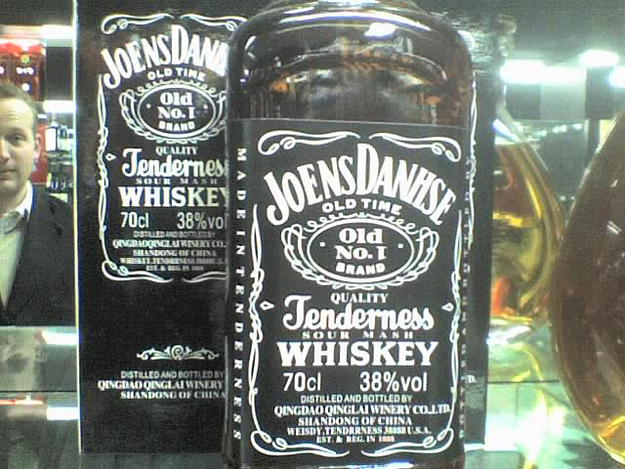
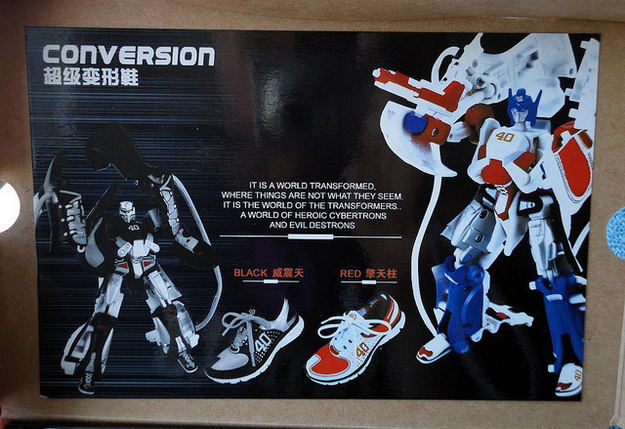
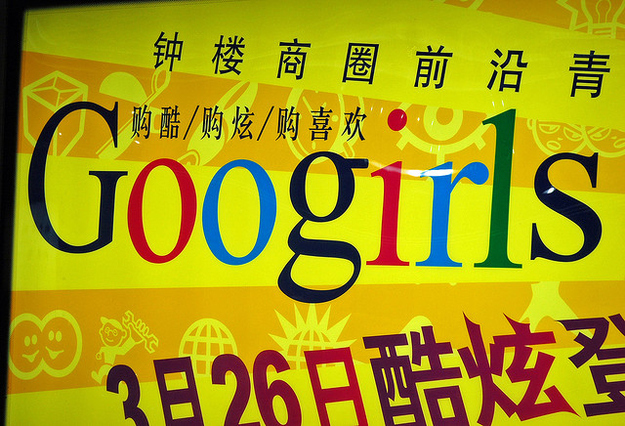
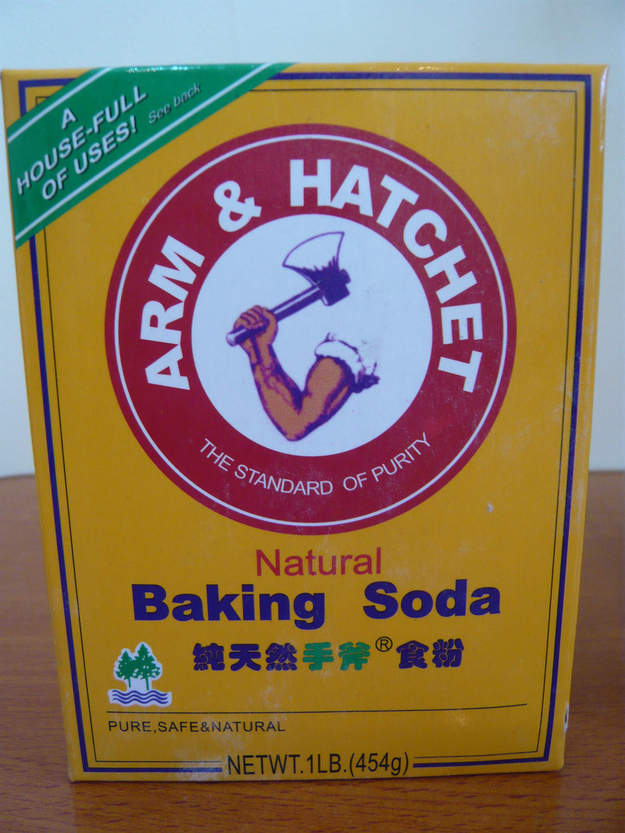

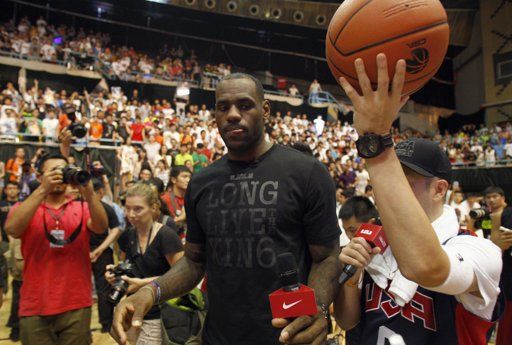
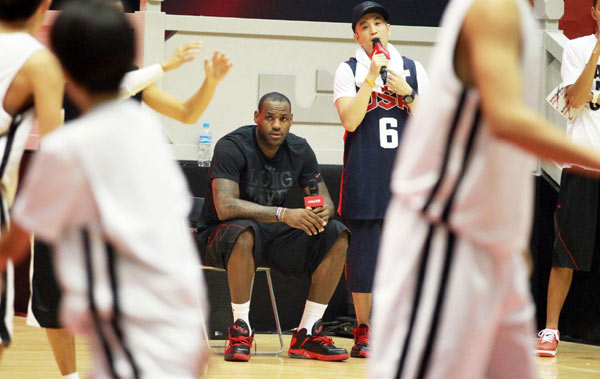

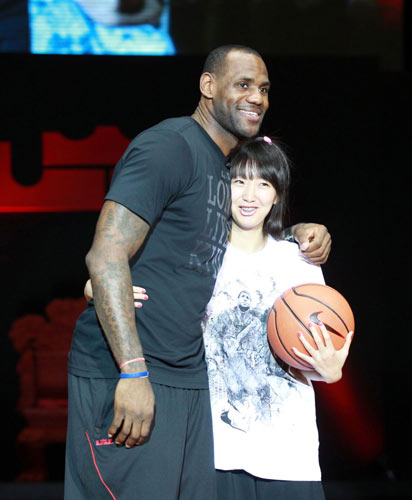








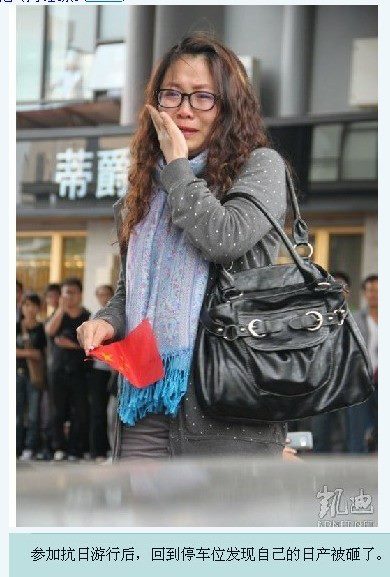


Comments